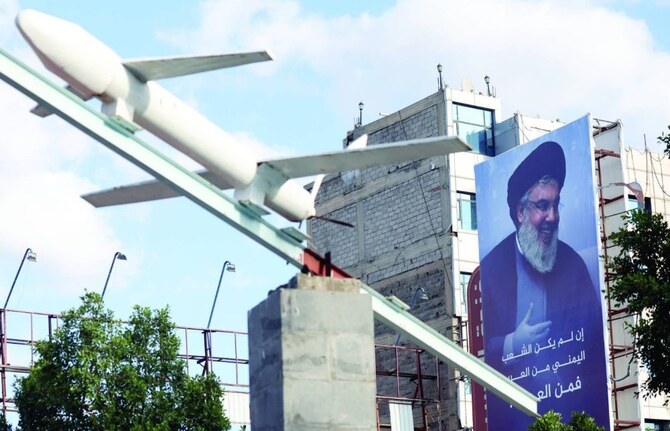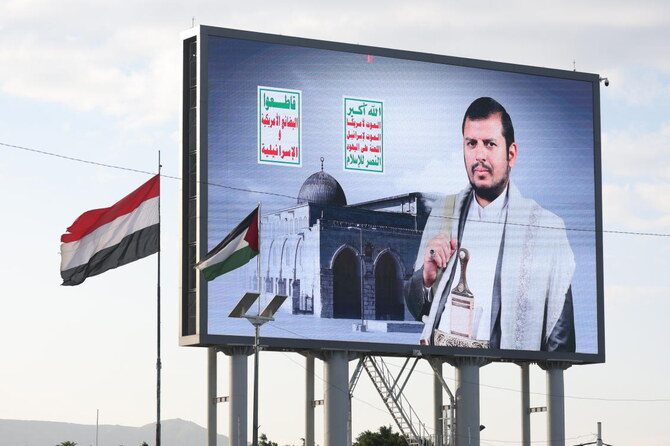AL-MUKALLA: Yemen’s Houthi militia said on Tuesday it launched drones at the Israeli city of Ashkelon a day after claiming to have attacked several ships in international waters off Yemen.
In a statement, Houthi military spokesman Yahya Sarea said drones were launched at an industrial zone in Ashkelon, claiming they “successfully” struck their target, and vowing to carry out more attacks until Israel ends its military operations in the Gaza Strip and Lebanon.
Israeli media reported explosions in Ashkelon and in Nahariya caused by another drone fired from Lebanon. The Israeli military said the drone launched from Yemen landed in a “open area” in Ashkelon.
“Following an initial examination regarding the UAV that fell in an open area in Ashkelon in southern Israel earlier today, it was determined that the UAV was launched from Yemen,” it said in a statement.
Previous Houthi missile and drone attacks on Israel triggered two waves of retaliatory airstrikes by Israeli warplanes, which struck power stations, ports, and fuel storage facilities in the western city of Hodeidah, which the Houthis control, in July and September.
Sarea said in a broadcast on Monday night the Houthis also attacked three ships in the Arabian Sea, Red Sea and Bab Al-Mandab Strait, the latest in a series of attacks on maritime trade in a campaign the group claims is in support of the people of Palestine and Lebanon.
He identified the ships as the SC Montreal, which was attacked with two drones while sailing in the southern Arabian Sea, the Maersk Kowloon, which was attacked with a cruise missile while sailing in the Red Sea, and the Motaro, which was attacked in the Red Sea and Bab Al-Mandab Strait with multiple ballistic missiles.
The three ships were targeted because their parent companies violated a ban on sailing to Israeli ports, Sarea said.
All three ships are Liberian-flagged vessels. The SC Montreal is sailing from the Seychelles to Oman. The Maersk Kowloon is sailing from Oman to an unknown destination, and the Motaro from Russia to China.
The Houthi statement came hours after the UK Maritime Trade Operations, an agency that documents ship attacks, reported on Monday that the master of the Motaro, sailing 25 nautical miles south of Yemen’s Mocha town on the Red Sea, reported three explosions at various intervals near the ship, but that the vessel and its crew were safe.
The Joint Maritime Information Center identified the attacked ship as the M/V Motaro, “on transit” from Ust Luga in Russia to Shanghai, adding that the ship had no connection to Israel, the US, or the UK, and it could have been attacked because another ship owned by the same company visited Israel.
“Indirectly (through multiple layers), within the ownership structure, JMIC has discovered a subsidiary linkage to a vessel visiting an Israeli port in the recent past,” the JMIC said.
Since November, the Houthis have seized a commercial ship — the Galaxy Leader — and its crew, sunk two others, and set fire to several more, firing hundreds of ballistic missiles, drones, and drone boats at civilian and naval ships in the group’s campaign.
Critics dispute the Houthi claims of support for the Palestinians or Lebanon, arguing that the beleaguered militia used the conflict to recruit new fighters, increase public support, deploy forces in contested areas, and silence voices calling on the Houthis to repair crumbling services and pay public employees.




























